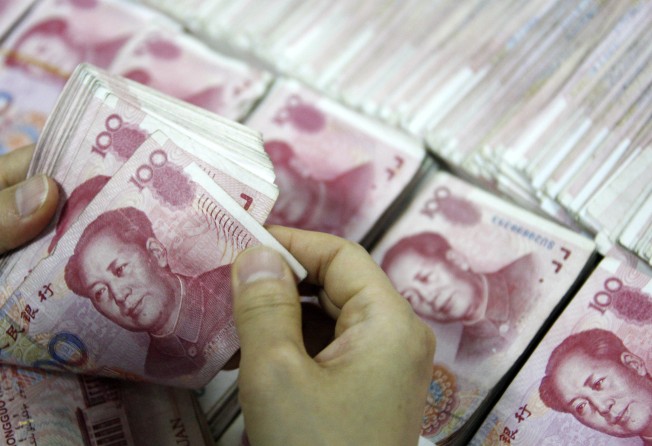Offshore yuan centres not the biggest threat to Hong Kong's financial sector
The real threat to the city's yuan business is the possibility of Beijing opening up capital markets

As local banks uncork the champagne today to celebrate 10 years since they were first allowed to engage in personal banking in yuan, they still face significant challenges ahead.
Hong Kong Monetary Authority chief executive Norman Chan Tak-lam warned last week that the city could no longer rest on its laurels, having lost its monopoly on the offshore yuan business, a privilege enjoyed from 2004 until 2012.
Over the past year, Beijing has given the approval for other financial centres, such as London, Singapore, Sydney and Tokyo, to do business in yuan to further encourage international use of the currency.
It will not be easy for banks in Hong Kong to fend off such competition. In the case of global banks with international networks, their operations in London or Sydney could work together with their Hong Kong branches in the offshore yuan business. Domestic Hong Kong banks, which do not have a wide international network, will find it hard to compete in the yuan business. In fact, the real competition is not from overseas centres, since Hong Kong - which is directly adjacent to the mainland - has an unrivalled advantage over them.
The real threat to Hong Kong's yuan business is the possibility of the mainland fully opening up its capital markets.
Once Beijing lifts its capital controls and foreign companies are able to raise funds directly on the mainland and easily trade stocks and bonds there, there will not be much of a role for Hong Kong markets to play.
When that happens, the question is whether there will still be a demand for an offshore market in yuan. To keep clients from going directly to financial institutions on the mainland, banks in Hong Kong will need to show they can offer better yuan products and services.
The city's banks, brokers and other professionals have for the past two decades enjoyed the benefits of the mainland's capital controls.
It was because of these controls that mainland firms have to issue two classes of shares - H shares in Hong Kong, to tap funds from international investors - and A shares in Shanghai or Shenzhen, for domestic investors.
Once capital controls are lifted, there will be no need for these two classes of shares. Hong Kong Exchanges and Clearing will then have to compete with the bourses in Shanghai and Shenzhen on a level playing field for listings of mainland firms.
At present, 60 per cent of foreign direct investment in the mainland flows from Hong Kong, and 30 per cent of the mainland's exports are handled by the city.
It is also because of the capital controls that companies must use Hong Kong as a gateway. Once they are abolished, firms will be able to deal directly with the mainland, making Hong Kong no different from other Chinese cities.
Ten years ago, few would have expected Beijing to relax its capital controls in the near future. But with the progressive internationalisation of the yuan, that day is getting closer.
However, it is not all negative news for Hong Kong because when the capital controls are lifted, it will be easier for mainlanders to trade in Hong Kong's stocks and other investment products.
The key question is whether the local bourse and financial firms in the city are well enough prepared for that day.